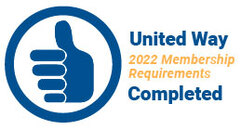|
Earlier this year, Valley Oaks in Tippecanoe County obtained a grant from the Family and Social Services Administration/Division of Mental Health and Addiction, Addiction and Forensic Treatment Team to expand the Tippecanoe Quick Response Team (QRT) into White and Jasper Counties.
Many community members have been involved in the planning process. We have had representatives from the Mayor’s office, the judicial branch, law enforcement, health care administrators and workers, educators, pastors and community members working together to develop the plan. Their vision statement is “Working Together to promote healthy recovery for those involved in substance abuse and trauma.” Through this grant, the North Central QRT will begin work in White County starting September 1, 2019. When someone in White County has a Narcan or substance abuse contact through 911 or the IU Health White County Memorial Hospital, a peer recovery coach (PRC) and an EMT will make contact with them within 72 hours of the event. At that contact, the team will offer wellness and recovery services to the individual. “Since the PRC has experience in substance abuse and/or mental health as well as formal training, they can offer the individual self-directed, strengths-based peer support. This approach has proven to be successful in winning the confidence of a highly resistant population. The addition of clinical supports as well as wrap-around services offers clients a trauma-informed, multi-faceted menu of options to both initiate and sustain long-term recovery.” (North Central QRT Facebook page) Another benefit of the QRT is providing transportation to services. Often those in early recovery have difficulty finding transportation to community services. Not only does the QRT help set up appointments, they also can provide transportation. In addition, people may call their hotline number (765-607-6771) for themselves or to refer someone else. When calling the QRT number you will hear a recording asking you to respond to four questions: Your name, your age, a brief description of your situation, and an address or phone number where you can be reached. The team will make contact within 72 hours. One of the biggest challenges for the QRT can be finding the individual. The contact information given during an emergency room or EMT visit may not be correct. The person may be staying with a friend or relative, or may be homeless. Many times in Tippecanoe County, the QRT responds to the address of a family member. Even then, they are able to offer resources and support. In one instance, the QRT was on a follow-up call related to a Narcan incident. Although the individual who received Narcan was not present, QRT made contact with his distraught mother, who had not seen her son for several months. They listened to her story, offered her Narcan, and taught her how to administer it. They encouraged her to call if they could be of further assistance. Several months later, she did call. When the team arrived, they were greeted with hugs. She invited them in, and sitting in the living room was her son with a suitcase by his chair. He had overdosed at her house the day before, she was able to save his life with the Narcan the QRT had provided, and he was willing to initiate treatment. The QRT presence in White and Jasper Counties is a tremendous source of hope, and we are grateful to Valley Oaks for initiating this possibility.
0 Comments
Your comment will be posted after it is approved.
Leave a Reply. |
AuthorLynn Saylor is the AmeriCorps member working with the United Against Opioid Abuse Initiative alongside the White County United Way. She is a major facilitator of the United Council on Opioids serving White County and a regular contributor to local media. Archives
October 2020
Categories
All
|

 RSS Feed
RSS Feed
